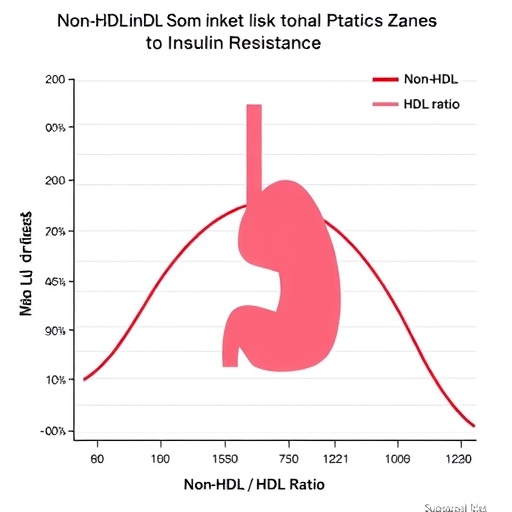
In a remarkable exploration within the realm of chronic illnesses, a recent study sheds light on a pressing health concern for millions globally: diabetic kidney disease (DKD). Conducted in Ethiopia, this systematic review and meta-analysis seeks to provide clarity on both the incidence and the predictors of DKD among adult patients with type 2 diabetes mellitus (T2DM). The significance of this research cannot be overstated, as it serves as a crucial step toward understanding how diabetes affects kidney health, particularly in populations that may have been underrepresented in previous studies.
Historically, the burden of diabetes and its related complications has escalated, leading to an increased prevalence of kidney disease. As kidney function deteriorates in diabetic individuals, the likelihood of severe health repercussions rises. This necessitates a deeper understanding of the patterns and predictors that contribute to the development of DKD, particularly in resource-limited settings such as Ethiopia, where healthcare resources may be scarce or unevenly distributed.
The systematic review conducted by Wudu et al. meticulously collated data from various sources, highlighting that DKD is not merely a byproduct of uncontrolled diabetes but a complex interplay of genetic, environmental, and lifestyle factors. Their findings indicate alarming rates of DKD among T2DM patients, underscoring the urgent need for effective screening and early intervention strategies. This issue is particularly pressing, as detecting DKD in its early stages can lead to better management and prevention of further kidney damage.
Moreover, the predictors identified in this study emphasize the need for targeted public health interventions. Factors such as hypertension, hyperglycemia, and dyslipidemia are not mere statistics but represent very real risks that patients face daily. The interplay of these factors creates a web of challenges that healthcare providers must navigate when managing patients with diabetes. The review advocates for personalized medicine approaches tailored to the unique profiles of individuals at risk for DKD.
An important finding from the meta-analysis is the role of education and awareness among patients. The study suggests that individuals with a higher level of understanding of their condition tend to manage their diabetes more effectively, therefore reducing their risk of developing DKD. This insight drives home the importance of patient education initiatives that inform diabetic patients about the intricacies of their disease and the potential complications it can lead to, particularly affecting the kidneys.
In contemplating the healthcare system’s response to this growing crisis, the study calls for enhanced monitoring and screening protocols for individuals with T2DM. Routine check-ups that include kidney function tests are crucial in identifying at-risk patients before irreversible damage occurs. As such, establishing standard guidelines for healthcare practitioners in Ethiopia to follow could help bridge the gap in care delivery.
Furthermore, the research highlights socio-economic factors as significant contributors to DKD incidence. Individuals from lower socio-economic backgrounds may not have access to the necessary resources—whether it be nutritional guidance, regular medical check-ups, or diabetes management education. Therefore, public health policy must take a holistic view, addressing not only medical needs but also the social determinants of health that could be exacerbating this silent crisis.
In examining the geographical disparities within Ethiopia, the study reveals that certain regions may bear a heavier burden of DKD than others due to varying levels of healthcare accessibility. This data paves the way for targeted resource allocation by the government and NGOs, prioritizing areas with the highest prevalence rates and least access to care. By drawing attention to these geographical disparities, the research underscores the necessity for equitable health interventions across all regions.
Another critical aspect discussed in the study is the impact of lifestyle choices, including diet and physical activity, on the development of DKD. It posits that promoting lifestyle modifications among at-risk populations could result in significant health improvements. Encouraging physical activity and better dietary choices should be integral parts of any diabetes care plan, aimed directly at reducing the incidence of DKD and improving overall health outcomes.
In conclusion, the insights garnered from Wudu et al.’s study provide a much-needed lens into the reality of diabetic kidney disease in Ethiopia. As the research elucidates the relationship between diabetes and kidney health, it stands as a call to action for policymakers, healthcare providers, and community organizations. The need for urgent intervention is clear, and by characterizing the incidence and predictors of DKD, this study sets the groundwork for future research initiatives aimed at tackling this complex, multifaceted issue. The ultimate goal is to pave the way toward a healthcare system that prioritizes prevention and management of DKD, thereby improving the quality of life for countless individuals living with diabetes.
This study not only adds to the existing body of knowledge on diabetic complications but also asserts a compelling narrative for proactive healthcare strategies. The burden of diabetic kidney disease is one that must be addressed with urgency, innovation, and compassion, ensuring that every individual living with diabetes has access to the care they deserve.
Subject of Research: Diabetic Kidney Disease among Type 2 Diabetes Mellitus Patients in Ethiopia
Article Title: Incidence and predictors of diabetic kidney disease among type 2 diabetes mellitus adult patients in Ethiopia: a systematic review and meta-analysis.
Article References:
Wudu, M.A., Birhanu, T.A., Tegegne, K.D. et al. Incidence and predictors of diabetic kidney disease among type 2 diabetes mellitus adult patients in Ethiopia: a systematic review and meta-analysis.
BMC Endocr Disord 25, 190 (2025). https://doi.org/10.1186/s12902-025-02006-y
Image Credits: AI Generated
DOI:
Keywords: Diabetic Kidney Disease, Type 2 Diabetes Mellitus, Ethiopia, Systematic Review, Meta-Analysis, Health Interventions.
Tags: chronic illnesses in resource-limited settingsdiabetic kidney disease in Ethiopiaenvironmental factors affecting kidney healthepidemiology of diabetes in Ethiopiagenetic predisposition to diabetic kidney diseasehealth disparities in diabetes carehealthcare challenges in diabetes treatmentincidence of DKD in adultslifestyle influences on diabetes managementpredictors of diabetic kidney diseasesystematic review of DKD studiesType 2 Diabetes Mellitus complications




